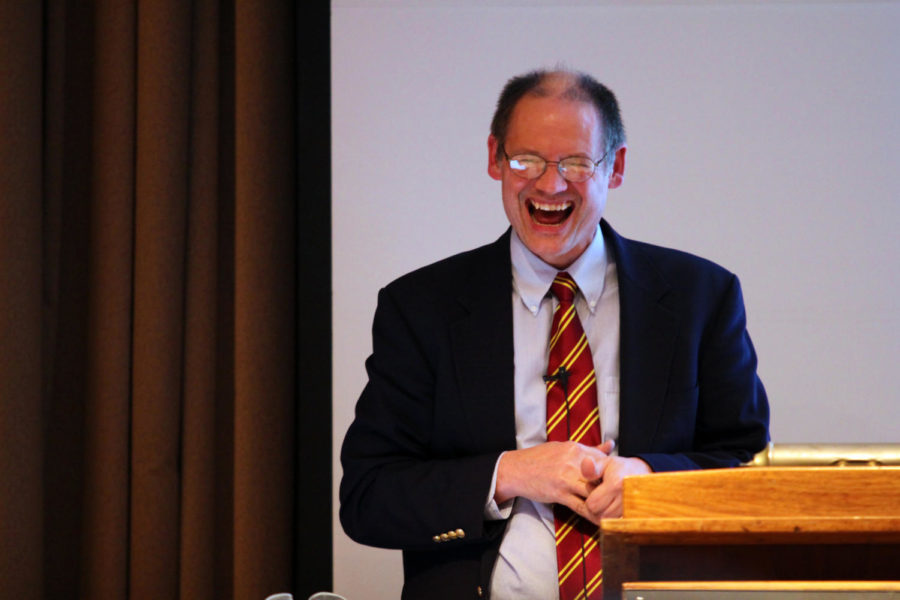Invest a little or all at once? Peter Orazem talks about investing in Africa
November 15, 2012
On Wednesday night, the Sun Room of the Memorial Union was about as busy as it gets, and Peter Orazem was socializing with his audience.
Orazem is an economist and a professor at Iowa State. He was recently asked to write an article for the Copenhagen Consensus, a consortium of ideas to help developing countries. At this time, roughly one-third of the top ideas in the program are his.
He described the process of the consensus as “a few people get chosen to write their own idea in an essay to help improve another country, and then, two people get assigned to prove them wrong.”
His essay focused on improving education in countries and how doing this will help the economy in those countries.
“Roughly half of all uneducated children in the world are in Africa.”
He pointed out that children in countries that have had at least six years of education in Africa are still illiterate. This is a problem.
Orazem said this actually relates back to agriculture. Many children in Africa are not receiving the nutrients they need to sustain the energy to learn because the countries cannot support their dietary needs.
“The amount of nutrients a child in Africa, on average, has per day is equivalent to a child in England in the 1700s when mortality rates were to about the age of 30.”
In studies where African children have been given enough nutrients the body is proven to need, these children had grown up to successfully finish school, get married, and have a 20 percent better income than children who did not, Orazem said.
“The investments you make to these children early on in life benefits them greatly later on.”
The second problem he focused on was the dedication to education the country actually has.
In many countries in Africa, teachers don’t show up to classes most days but are not punished. This means more and more children not show up to classes, either.
Orazem suggested we fix this by “monitoring teachers and efficiency of schools.” Instead of just sending them more money to help, actually check to see if the actions of their schools are being carried out properly. “We shouldn’t send more funding to teachers that aren’t showing up.”
Some things that have motivated good outcomes in school systems in Africa are informing the communities of having more positive returns coming back from children who are better educated and paying teachers bonuses for higher test scores.
If schools were better monitored, Orazem argued that more teachers and students would be dedicated, and it would be “a great distributor of nutrients to children.”
He concluded by saying he wants to end with one point: “At the end of the day, providing a few dollars early on in a kid’s life can provide phenomenal returns later on.”
Shreya Bhardwaj, sophomore in economics, said, “I felt like [the lecture] was extremely generalized. There is merit to what he is saying, but you need to look at the needs of each country individually, not just as a continent as a whole.
“What is developed country’s role in all of this? … What things do we do that affect them, like taking their resources?” Bhardwaj asked. “You must find the root of the problem, not just put a band-aid on it.”
Kelsey Kuba-Tresnak, open option freshman, had a slightly different view.
“It was interesting and provided a different outlook on how to better the economy in Africa from an education perspective,” Kuba-Tresnak said. “It is crazy to think that just providing a child with two or three more dollars can get them the nutrients they need to better their education, increase their health, better income later on and increase continuing dedication.”







